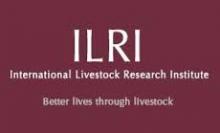Location
Vision, mission and strategy
ILRI's strategy 2013-2022 was approved in December 2012. It emerged from a wide processof consultation and engagement.
ILRI envisions... a world where all people have access to enough food and livelihood options to fulfil their potential.
ILRI’s mission is... to improve food and nutritional security and to reduce poverty in developing countries through research for efficient, safe and sustainable use of livestock—ensuring better lives through livestock.
ILRI’s three strategic objectives are:
- with partners, to develop, test, adapt and promote science-based practices that—being sustainable and scalable—achieve better lives through livestock.
- with partners,to provide compelling scientific evidence in ways that persuade decision-makers—from farms to boardrooms and parliaments—that smarter policies and bigger livestock investments can deliver significant socio-economic, health and environmental dividends to both poor nations and households.
- with partners,to increase capacity among ILRI’s key stakeholders to make better use of livestock science and investments for better lives through livestock.
This is ILRI’s second ten-year strategy. It incorporates a number of changes, many based on learning from the previous strategy (2000–2010, initially produced in 2000 and modified in 2002), an interim strategy (2011–2012) and an assessment of the external and internal environments in which the institute operates.
Members:
Resources
Displaying 646 - 650 of 1152Pastoralist futures in Africa a balance between traditions and opportunities
ILRI's Augustine Ayantunde reflects on the recent conference in Addis Ababa on the future of pastoralism in Africa. He draws attention to the two major conference strands - on one side, the optimists, on the other 'doom and gloom.' One thing is clear, it is not really possible to generalise across regions. He concludes by suggesting that the future will lie in pastoralist communities being able to take advantage of present opportunities while also taking care of their traditions.
There are many futures for pastoralism in Africa
Adrian Cullis from FAO Ethiopia reflects on the recent conference in Addis Ababa on the future of pastoralism in Africa. The event's fundamental take home message is that "there is a future for pastoralism in Africa." However, it looks like there will be different futures and different forms of pastoralism - with winners and losers. He also outlines the work FAO does in this area, and comments on some issues like gender and productivity issues (of rangelands, of livestock) that received insufficient attention in the meeting.
Repeated droughts and hazards are the real challenge for Pastoralist communities
Jan de Leeuw from ILRI reflects on the impacts of droughts and hazards on pastoral communities in Africa. He argues that pastoralists are often well-adapted to short term hazards and droughts. A single-season drought weakens livestock and communities. When rains fail repeatedly however, the problems start, and the impacts can be long-lasting. He was talking in the margins of the recent conference in Addis Ababa on the future of pastoralism in Africa. The Addis Ababa conference (21-23 March 2011) was organized by the Future Agricultures Consortium with Tufts University.
Protecting pastoralists against mortality losses due to severe forage scarcity
Pastoral systems and cultures in transition
Jan de Leeuw from ILRI reflects on the recent conference in Addis Ababa on the future of pastoralism in Africa. He concludes that pastoral systems in Africa are very much in transition. He notes that external influences on pastoralism (education, religion, land rights etc) are much more visible than in the past; the "full mobility" pastoralism that we knew is changing.


